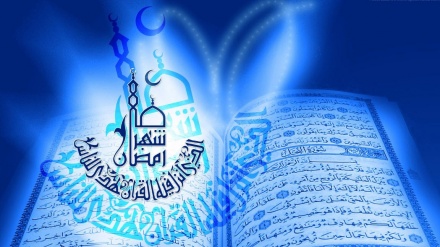Blessed Month of Ramadhan
Welcome to the 27th episode of the series “Blessed Month of Ramadhan”. A faithful Muslim is humble and modest before God; and is kind toward his brethren; while powerfully standing up against the unjust.
This marks the phases of growth of the Islamic Ummah. This elevation is to an extent that it even astounds the individuals, who have set the stage for this growth and development. Thus, whenever an arrogant enemy observes an individual who has had an Islamic upbringing, he is angered.
On the 27th day of the blessed month of Ramadhan, we speak of the beautiful experience of reliance upon God. A friend said whenever he faces hardships and woes, he recites part of the 36th ayah of Surat az-Zumar in Holy Qur’an, which reads: “Does not Allah suffice to defend His servant?...”.
He said that recitation of this ayah provides peace of mind, leading him to leave everything to God and to seek His assistance.
Whenever an individual faces a difficulty and feels that he cannot solve a problem on his own, he chooses a capable person as his representative and attorney. The further the knowledge, power, trustworthiness, and honesty of this attorney; the more important is this representation; and the possibility of your victory. Now, if someone chooses God as his support and protector, he should know that Divine Assistance is sufficient; because when God bestows blessings upon mankind, nothing can obstruct these blessings. The faithful, through reliance upon God, establishes the firm and unbreakable bond with the Omnipotent Creator, thereby attaining an especial ability. Seeking refuge in God does not mean sitting idle without making efforts for achievement of one’s goal. Also, trust in God and reliance upon him doesn’t mean that one should only pray to God and neglect his everyday affairs. A person, who truly relies upon God, makes better use of his abilities and the means he has for attainment of his goal, since his entire life is the gift of God. At the same time, such a person has firm belief in Divine Assistance in the materialization of his goals. When relies on God, he/she never feel fragile in hardships, since it is reliance upon God that fills the heart with hope, removes despondency, and motivates the believer to move forward. It is said reliance upon God by the believers is akin to the relationship between a child and its mother. A child doesn’t know anyone other than the mother and only trusts her. If the child faces a problem, the first thought that crosses its mind is to seek the mother’s lap. The highest level of reliance upon God is when begins to realize that God is the Only Organizer of his affairs.
Ayah 29th of Surat al-Fath reads:
“Mohammad, the Apostle of Allah, and those who are with him are hard against the faithless and merciful amongst themselves. You see them bowing and prostrating in worship, seeking Allah’s grace and His pleasure. Their mark is visible on their faces, from the effect of prostration. Such is their description in the Torah and their description in the Evangel. Like a tillage that sends out its shoots and builds them up and they grow stout and settle on their stalks, impressing the sowers, so that He may enrage the faithless by them. Allah has promised those of them who have faith and do righteous deeds forgiveness and a great reward.”
This ayah points out to the mission of the Prophet of Islam, and described the traits of the faithful who are hard against the faithless and merciful amongst themselves. According to this ayah, the faithful continuously observe prayers and you see them bowing and prostrating in worship, while seeking Allah’s grace and pleasure. This ayah also pinpoints that the faithful’s mark is visible on their faces from the effect of prostration, which is a sign of their modesty before God. The other interesting point in this ayah is the resemblance of the faithful to a plant that is blessed, growing in numbers, thereby impressing the sowers, while enraging the faithless. This ayah also vows the divine forgiveness and rewards for those who have faith and do righteous deeds. This means that those who have faith but have not carried
We are in the final days of the blessed month of Ramadhan. At the end of this month, our previous dietary regimen is restored and our meals in Iftar and Sahari are turned into the three usual meals of breakfast, lunch, and dinner. Given that after the blessed month of Ramadhan, our food intake suddenly surges, we should be cautious not to gain weight. There are a number of important points in regard to our dietary regimen which should be learned and complied with.
Obesity is defined as excessive accumulation of energy, in the form of fat, in body. This problem occurs due to an imbalance in received and consumed energy. Obesity could lead to hypertension, a rise in blood cholesterol, diabetes, cardiovascular ailments, and some types of cancer.
In order to prevent obesity after the blessed month of Ramadhan, a number of points should be taken into consideration in these holy days. If you overeat in the last week of the blessed month of Ramadhan, or further consume nuts in this week, your appetite increases, which could cause weight gain. So, you are better off, continuing your dietary regimen in the blessed month of Ramadhan.
In the blessed month of Ramadhan, you have mainly consumed healthy food and your stomach has got used to nutritious foodstuff. So, try to continue your dietary regimen of the blessed month of Ramadhan, at least one or two weeks after this sacred month. After the end of Ramadhan, some start eating fast foods, absorbing an excessive amount of fat, thereby gradually gaining weight. Note that in the second half of the blessed month of Ramadhan, you should not eat excessively in Iftar. Dr. Razeen Mahroof, a postgraduate of Oxford University, believes eating excessively during Iftar is detrimental for one’s body. He calls on fasters to seize the opportunity which is raised in the blessed month of Ramadhan for balancing one’s weight. He adds that the main message of the blessed month of Ramadhan is maintenance of self-restraint, and purification of one’s soul, which should also be taken into consideration at the end of the day and during Iftar.
Overeating after the blessed month of Ramadhan could cause a surge in blood cholesterol, lead to indigestion and harm the digestion system. It is better to continue the appropriate dietary regimen which you adopted in the blessed month of Ramadhan, at least for one week after this sacred month. It is more appropriate to eat light, low-fat meals such as chicken, and fish, boiled food, and cooked vegetables in the first days after the blessed month of Ramadhan, so your digestion system gradually gets used to the new conditions.
AS/ME


